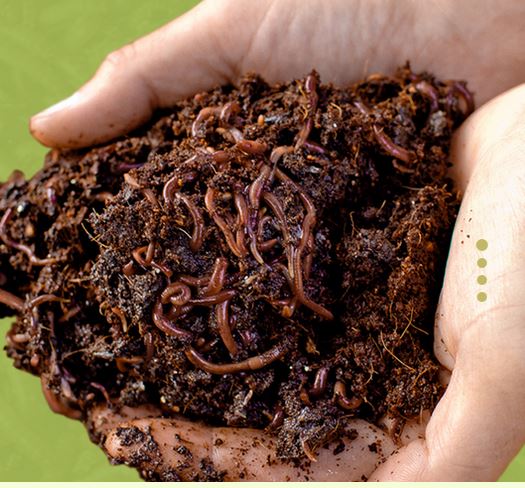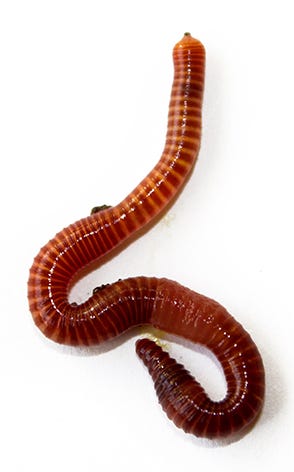Red Wiggler Worms - Boost Your Soil Health Normally
Wiki Article
Red Wiggler Worms Demystified: Opening the Secrets of Vermiculture for Greener Living and Nutrient-Rich Dirt
In the world of lasting practices for enhancing soil high quality and promoting eco-conscious living, red wiggler worms play a crucial yet commonly overlooked duty. Red Wiggler Worms. Comprehending the details of caring for these worms, optimizing their atmosphere, and using their castings can lead to a greener lifestyle and much healthier soil for plants to prosper.The Function of Red Wiggler Worms
Red Wiggler worms play a crucial function in composting systems by successfully damaging down natural matter right into nutrient-rich spreadings. These voracious eaters consume a variety of organic products, such as kitchen scraps, backyard waste, and paper products. As they feed, the worms' digestive system processes damage down the raw material into a fine, dark, and nutrient-dense product called worm castings or vermicompost.The spreadings generated by Red Wiggler worms are very valuable for dirt health and plant growth. They are rich in necessary nutrients like phosphorus, nitrogen, and potassium, which are vital for sustaining healthy and balanced plant growth. In addition, worm spreadings include helpful germs and enzymes that help enhance soil structure, rise water retention, and boost nutrient uptake by plants.
Advantages of Vermicomposting

It improves soil structure, improves soil oygenation, and raises soil moisture retention. Vermicompost also enriches the soil with important nutrients like potassium, phosphorus, and nitrogen, promoting plant growth and general soil fertility.
Furthermore, vermicomposting supports lasting horticulture methods by providing a chemical-free and natural choice to synthetic plant foods. Red Wiggler Worms. This environmentally friendly technique not only enhances the soil however additionally helps in reducing reliance on unsafe chemicals, advertising a greener and extra sustainable way of gardening
Establishing a Worm Bin
When establishing a worm container for vermicomposting, proper setup is important to make certain the success of the composting process. The very first step in establishing a worm container is choosing an appropriate container. This can be a plastic bin or wooden box that supplies adequate space for the worms to relocate about and has appropriate water drainage holes to stop waterlogging. address Next, a bedding material such as shredded newspaper, cardboard, or coconut coir ought to be contributed to the container. This bedding offers a comfortable setting for the worms and assists maintain wetness levels.After including the bedding, present the red wiggler worms to the bin. The worms ought to after that be offered with food scraps such as fruit and veggie peels, coffee grounds, and eggshells.
Frequently keep track of the wetness levels and temperature level in the worm bin to make certain optimum problems for the worms. With appropriate arrangement and maintenance, the worm bin will successfully transform organic waste into nutrient-rich compost for your plants and garden.
Collecting Worm Castings
To efficiently collect nutrient-rich worm castings from your vermicomposting system, a systematic harvesting method is necessary. When it comes time to a fantastic read collect the worm castings, there are a few crucial actions to follow to make certain a successful process. First of all, quit including fresh food scraps to one side of the worm bin for a number of weeks before harvesting. This motivates the worms to migrate to the side with fresh bed linens and food, making it much easier to scoop out the castings from the various other side.
Troubleshooting Common Issues
Determining and attending to usual difficulties that may develop during the vermicomposting procedure is essential for keeping a healthy and balanced and effective worm container. Adding excess food scraps can lead to a build-up of moisture and level of acidity in the worm container, potentially hurting the worms. An additional issue is unpleasant smells rising from the worm bin.
Furthermore, if the worm populace is declining or the worms show up harmful, it can be due to ecological stressors such as severe temperature levels or pH levels. Keeping track of these variables and making necessary modifications is vital for the health of the worms. By fixing these common issues immediately, vermicomposters can guarantee a effective and smooth vermicomposting process while keeping a thriving worm populace.

Conclusion
In verdict, red wiggler worms play an essential duty in vermiculture by breaking down organic matter right into nutrient-rich dirt. Establishing up a worm bin is necessary for effective vermiculture, and gathering worm castings offers beneficial compost for horticulture.As they feed, the worms' digestion browse around here procedures damage down the organic matter right into a penalty, dark, and nutrient-dense material known as worm castings or vermicompost.
The spreadings generated by Red Wiggler worms are extremely helpful for soil wellness and plant growth. Including excess food scraps can lead to an accumulation of wetness and acidity in the worm container, potentially harming the worms.Additionally, if the worm population is decreasing or the worms show up unhealthy, it could be due to ecological stressors such as extreme temperature levels or pH degrees. Establishing up a worm bin is necessary for successful vermiculture, and gathering worm spreadings gives beneficial compost for horticulture.
Report this wiki page